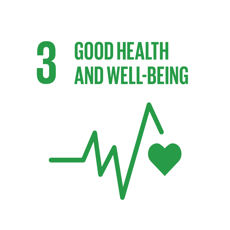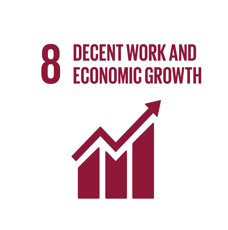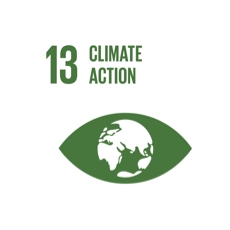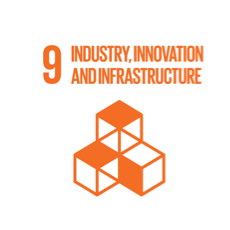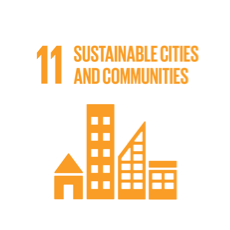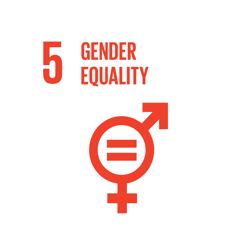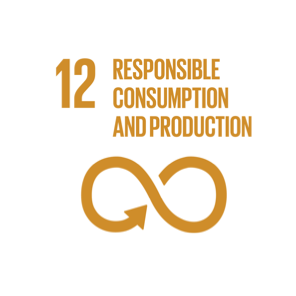Downer recognises that our business operations have a direct impact on a wide range of stakeholders.
Downer believes that what is important to our stakeholders is important for us to meet our strategic objectives and fulfil our Purpose. This requires ongoing and effective engagement with our stakeholders, where we provide transparent and timely information and actively encourage feedback. We utilise the following initiatives to promote open, two-way communication between Downer and our stakeholders.
How we engage with our external stakeholders
community
Downstream stakeholders – comprises the paying customer and end-users of Downer’s products and services.
What are material issues?
Downer seeks to identify the issues where we have the most significant impacts* (‘Importance for Downer’ in the materiality matrix) and which matter most to our stakeholders and can therefore most influence their assessments and decisions (‘Importance for stakeholders’ in the materiality matrix). These issues have the most influence over the value that Downer creates for shareholders, and other key stakeholders, now and into the future.
We refer to these as our material issues. In FY21, Downer revisited our materiality assessment in accordance with the Global Reporting Initiative (GRI) Standards. Materiality Counts, an independent expert, led a process to engage selected internal and external stakeholders to identify and understand our material economic, social, environmental and governance risks and opportunities.
Why we do this
Reporting on the issues that Downer has the most significant impact on, and which matter most to our stakeholders, ensures this report is directly relevant to our target audiences. Material issues are also a valuable input to our strategic planning. Downer recognises these issues may change over time, reflecting changes in our business and external operating environment and the expectations of stakeholders. We use the results of the materiality assessment to inform our business strategy and our sustainability framework and targets.
* ‘Impacts’ can refer to environmental, social and economic impacts, which can be positive, negative, actual, potential, direct, indirect, short-term, long-term, intended or unintended.
Our materiality process
The independent process consisted of the following steps.
Step 1
Develop the universe of potential material issues:
A list of potential material issues, alongside short explanations, was compiled using a comprehensive range of inputs including material risks, media scanning, stakeholder feedback, employee surveys, peer review, industry trends and the United Nations’ Sustainable Development Goals (SDGs). Downer’s 2019 material issues list was reviewed considering changes to our business structure and investor base, as well as COVID-19 impacts, and taking into account risk and peer reports. This resulted in a consolidated list of 19 potential issues for review and discussion by stakeholders.
Step 2
Materiality survey:
A representative sample of stakeholders was identified for consultation. This included internal stakeholders – namely Board members, Executives and key employees – as well as external stakeholders including investors, customers, suppliers, industry associations and Non-Governmental Organisations (NGOs), ensuring geographic spread across Australia and New Zealand. All stakeholders completed a survey, providing quantitative data on the relative priority of the issues.
Step 3
Stakeholder interviews:
One-on-one telephone interviews were conducted with selected internal and external stakeholders, which provided qualitative information to increase our understanding of the current and future context of each issue, including the potential for it to impact our value creation over time.
Step 4
Validation of the results:
The validation of results by Downer’s Executives and Board is an important part of the process. The qualitative and quantitative results and stakeholder feedback were presented to Downer’s Executive Strategic Committee, where it was decided to elevate the priority ranking of Economic Performance from ninth to third, due to the business impact and importance placed on Economic Performance by both internal stakeholders and investors.
The 13 material issues and revised rankings were endorsed by the Zero Harm Board Committee.
The material issues listed below framed the structure and content of this Sustainability Report.
Materiality results
Stakeholders prioritised the issues based on their importance and significance of Downer’s impacts. This provided a list of the top 13 issues which Downer deems to be its material issues. The remaining six issues, which remain important to Downer and will continue to be addressed, are referred to as important issues.
The materiality results are shown in the matrix below and further explained in order of priority below.
The results were positive, with strong alignment between internal and external stakeholder views, as demonstrated in the spider diagram.
Materiality matrix
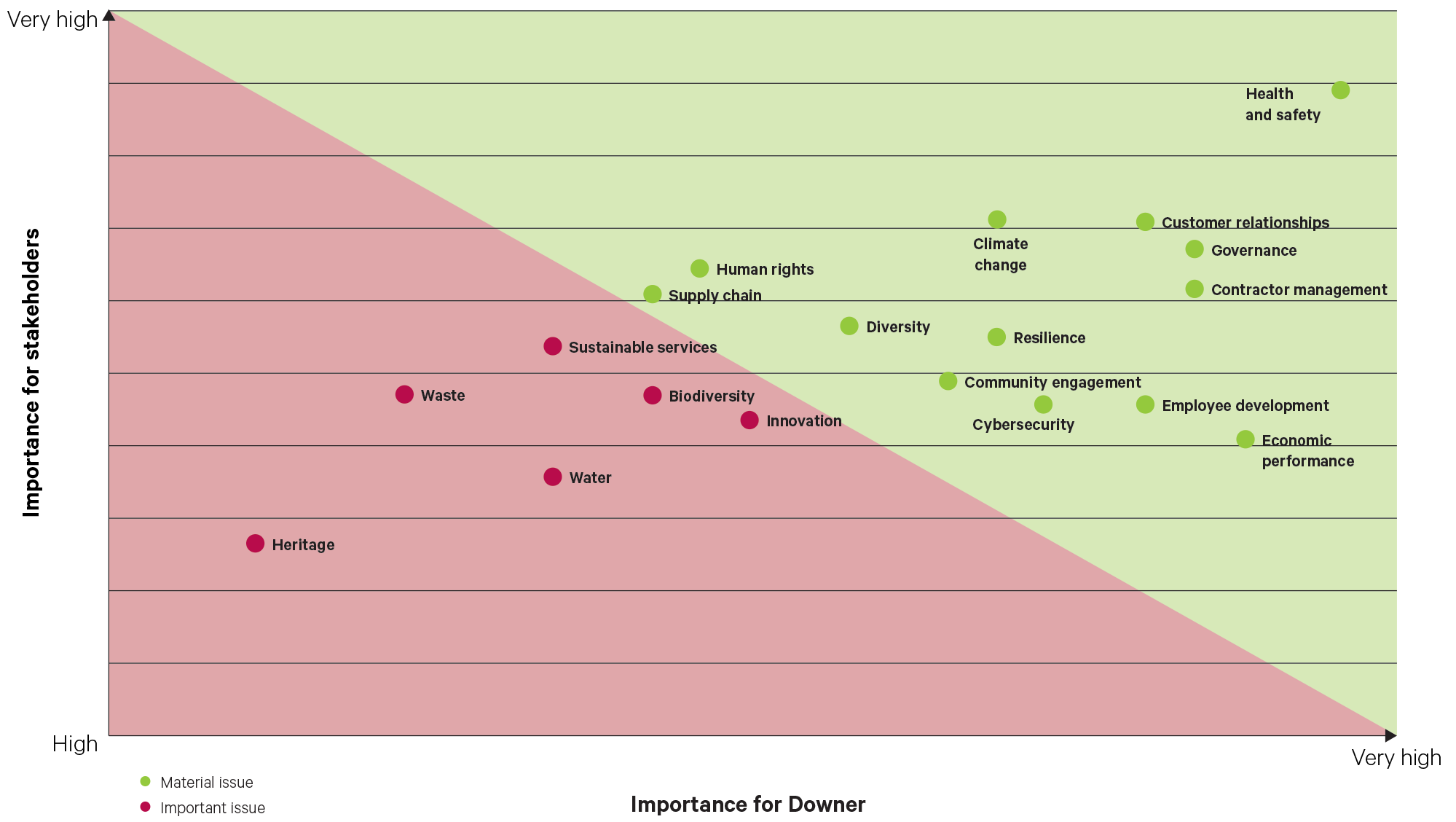
Material issues prioritised by internal and external stakeholder view
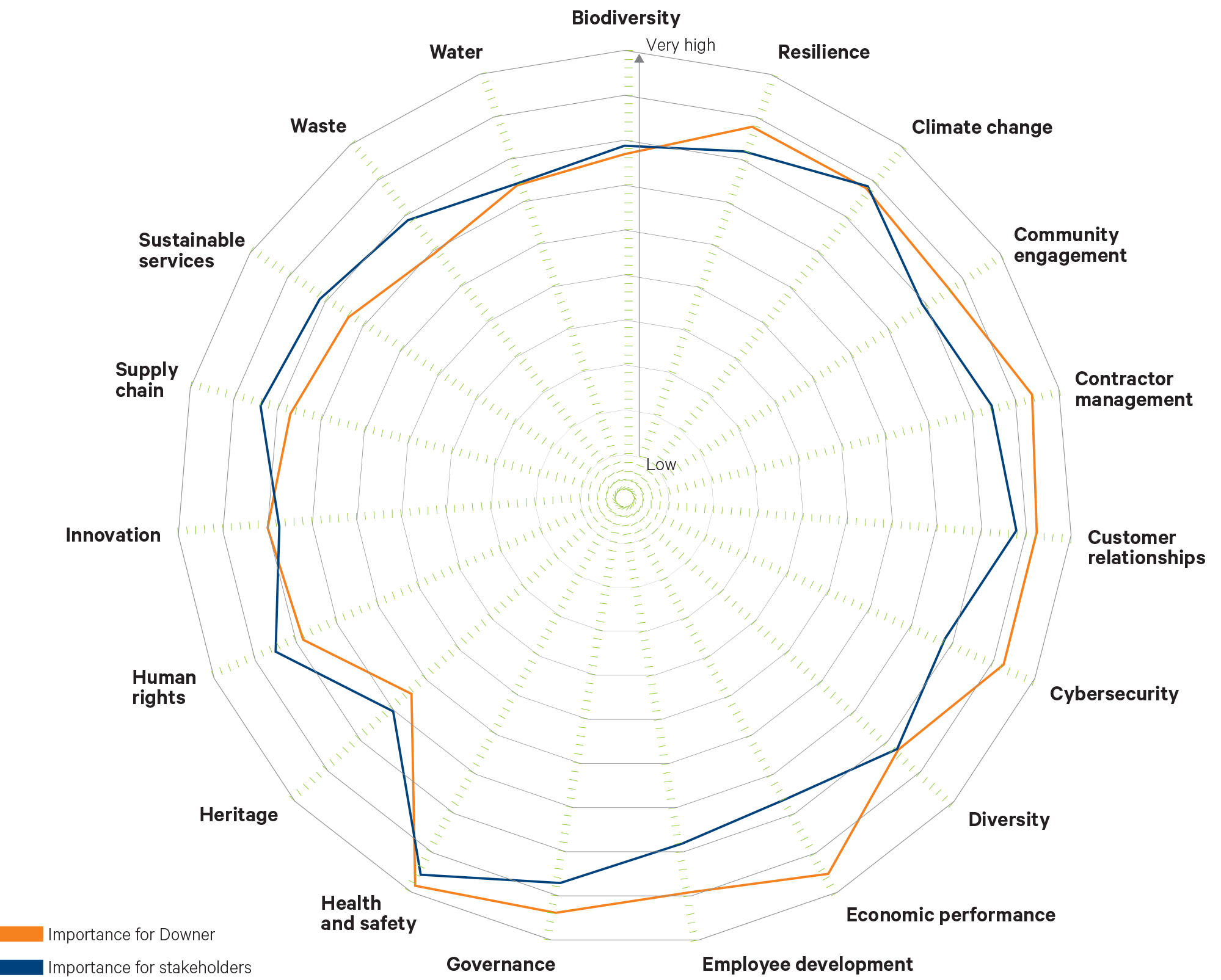
Material issues
The materiality assessment identified a prioritised list of 13 material issues, as well as the top eight Sustainable Development Goals that Downer contributes to.
The material issues are addressed within the relevant sections of this Sustainability Report, except for economic performance. These are referenced within the context of the Sustainability Report but addressed in more detail in Downer’s Annual Report.
Important issues
Downer’s six important issues, as identified in our materiality assessment, in order of priority, are:
Changes in material issues from previous years
Downer continues to refine its material issues list as a result of changes in the organisation, and the market in which it operates.
Compared with Downer’s comprehensive materiality assessment in 2019, there have been three new material or important issues added. These are:
- Cybersecurity
- Heritage management
- Human rights.
These issues have been reported on in previous years, as subsets of other material issues; but are now considered as standalone, potentially reportable issues in their own right.
Operational Performance and Financial Performance were combined to create a new material issue, Economic Performance.
Partnerships and Stakeholder Engagement was removed as a material issue. Relevant partnerships and stakeholder engagement are considered within each material issue, therefore listing this as a standalone issue was deemed redundant.

